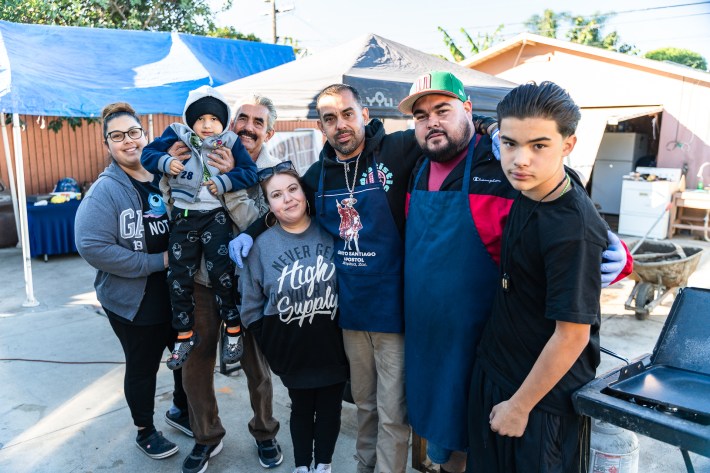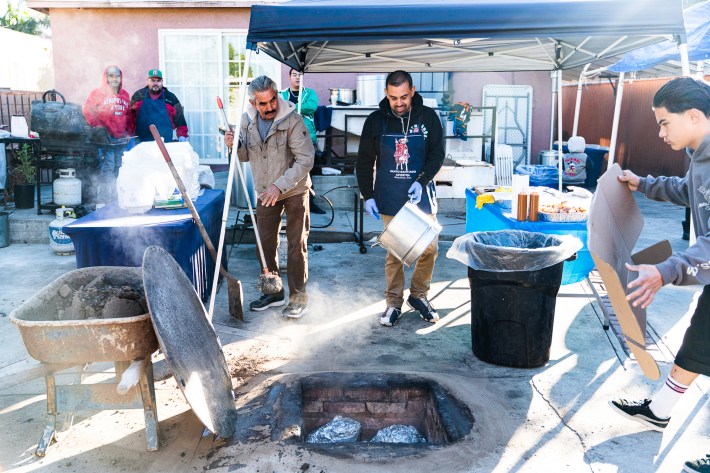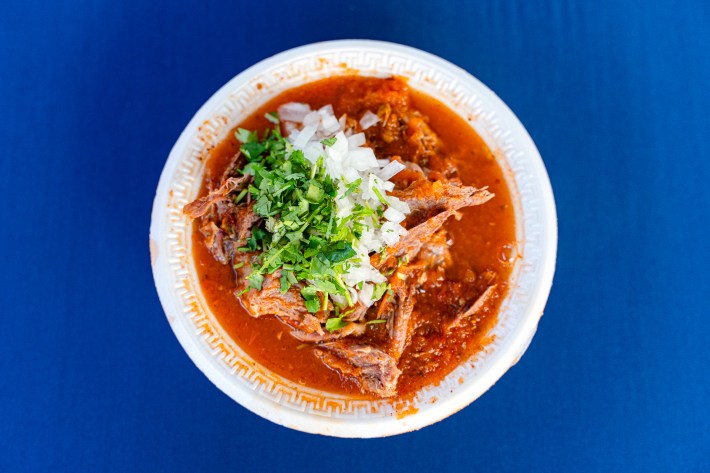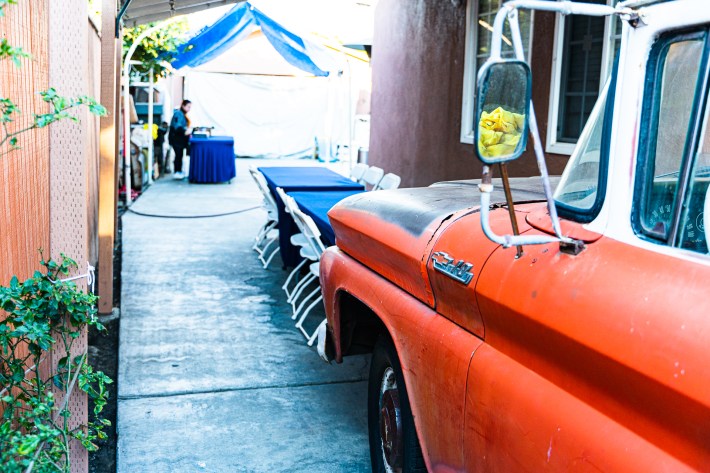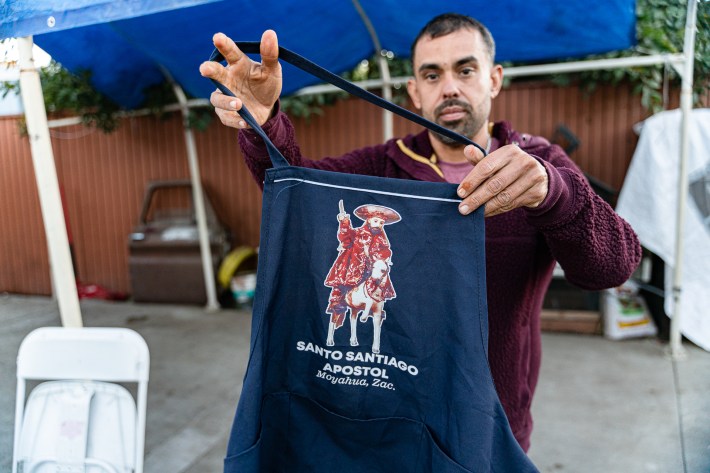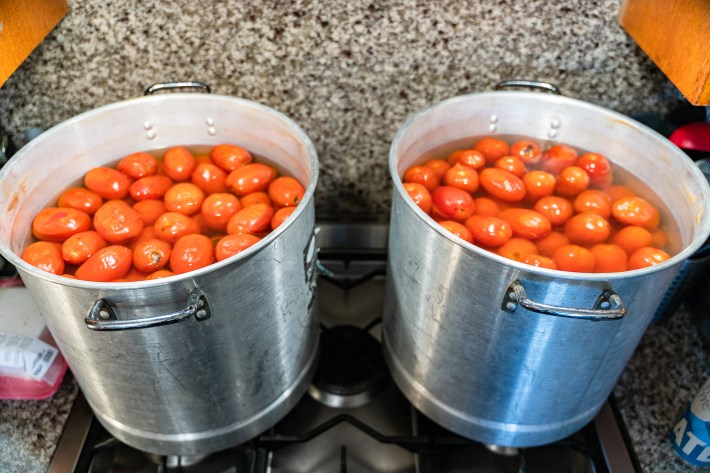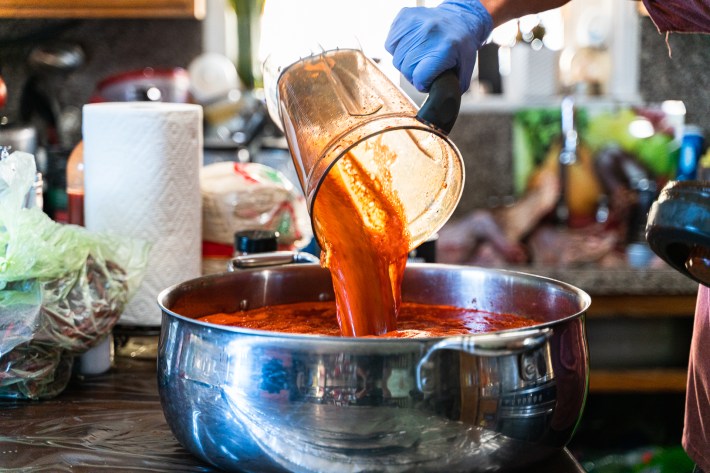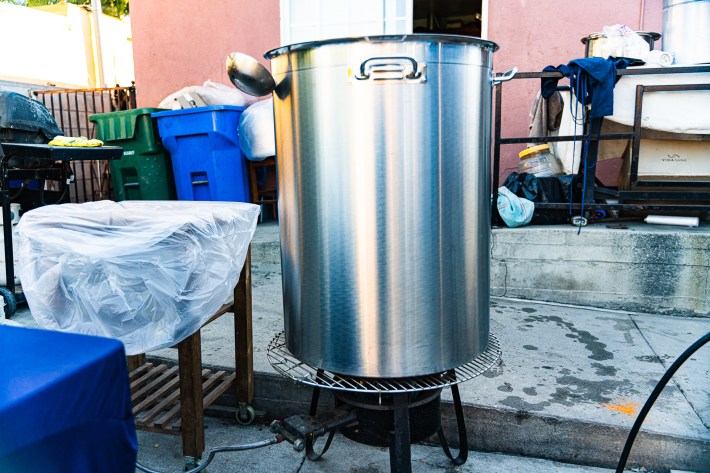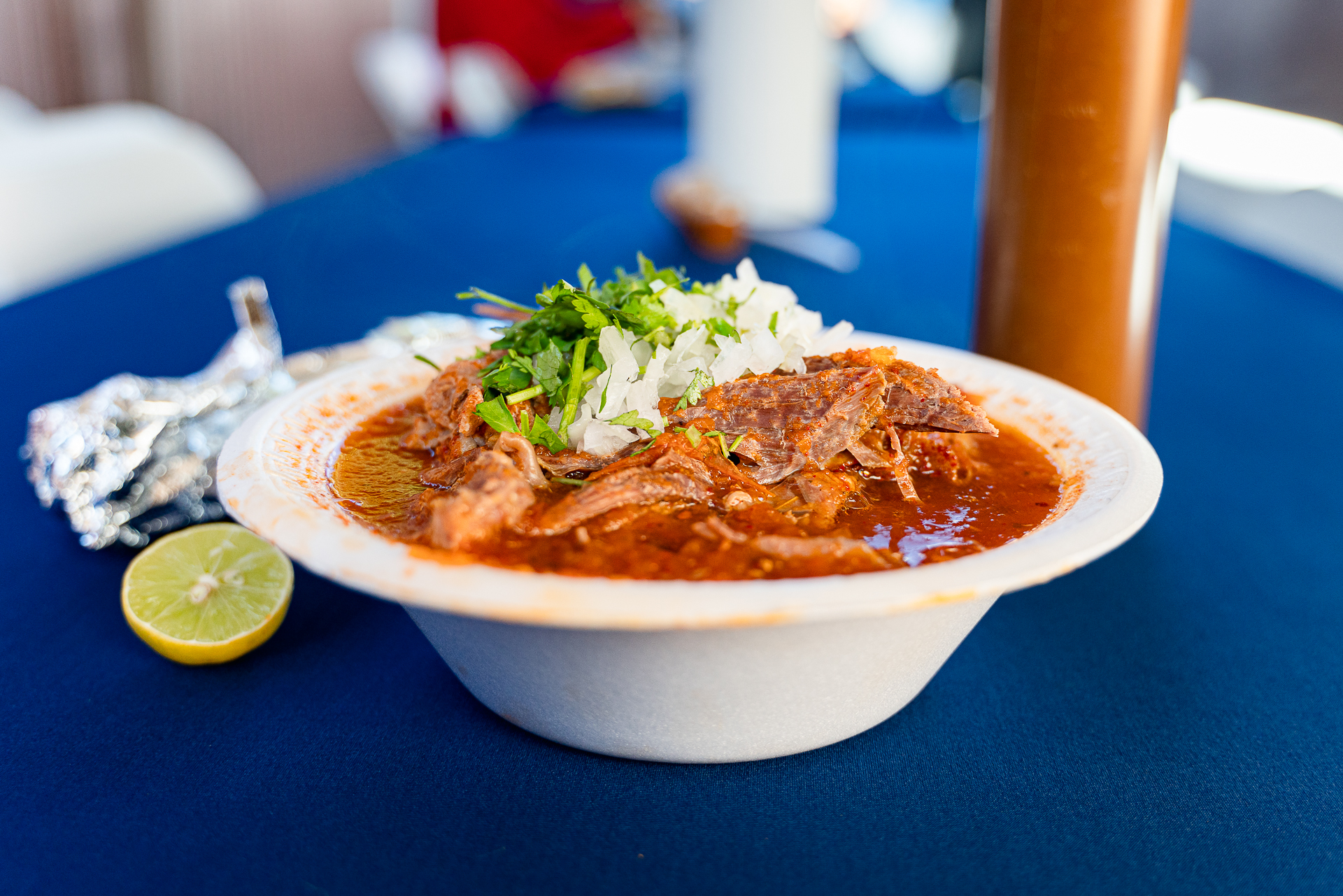This isn’t your average, made-for-Instagram birria.
Or rather, it’s not the birria you’ve seen take over Los Angeles.
The birria you’re probably eating is boiled in a pot for three to four hours with spices and chiles and is often based on beef. This birria, estilo Moyahua, Zacatecas, takes 24 hours, is roasted overnight in a brick oven pit, and involves a whole family effort to produce a dish that is just as fulfilling here as it is in its birthplace. Unlike many other birrias, the consomé is tomato-based, so no rendered meat broth is added.
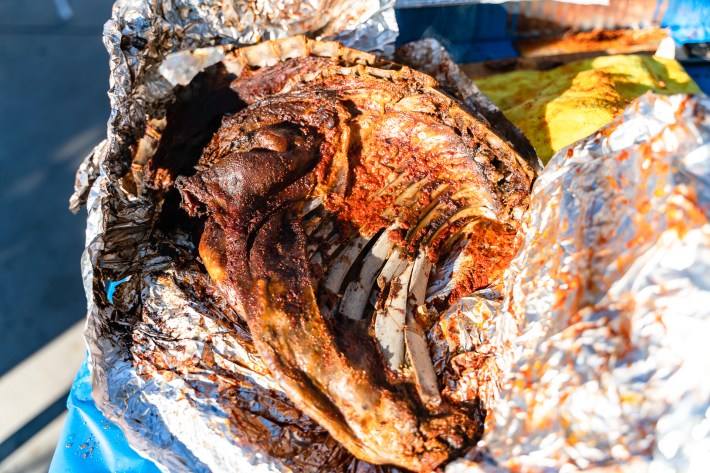
It’s the birria that all Moyahuenses, Cuxpalienses, and anyone from the Cañon de Juchipila in the southern part of Zacatecas has for quinceañeras, weddings, or any special occasion. It's from rancho land, where cattle and corn dominate, alongside ancient gold and silver mines. Where its people migrated and settled large parts of Mexicali and Los Baños, as farm workers, as well as the west side of Los Angeles, including Inglewood and Culver City, as gardeners and landscapers. This is the birria of my people.
It’s a rare style of birria in both Los Angeles and Mexico because of its unique preparation and flavors. The simple fact that it needs a pit, built like a brick-lined well inside of the ground, proves that it's a complex craft to master. Building the pit is the first challenge. Lighting it and bringing it to temperature is another.
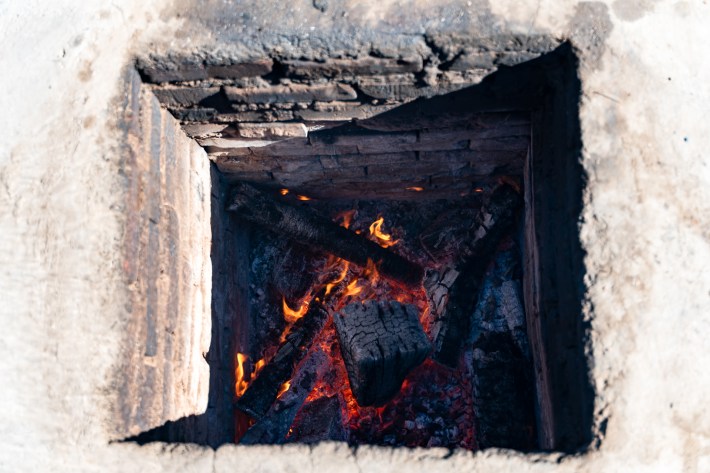
Raul Sandoval Sr. begins early Saturday morning, preparing the pit in his backyard to the tune of rooster calls, a shit-talking parrot, and airplanes roaring overhead.
He starts by throwing logs of eucalyptus and olive wood into the pit, slowly letting them catch fire, and feeding the fire throughout the day, until four in the afternoon when the ground is sufficiently hot. By then, the wood has reduced to smoldering embers, and agave fronds are thrown over the embers to protect the meat going in. These, combined with the eucalyptus and olive smoke, produce a pleasing aroma that adds another layer in dissipating the goat’s often unagreeable gaminess.
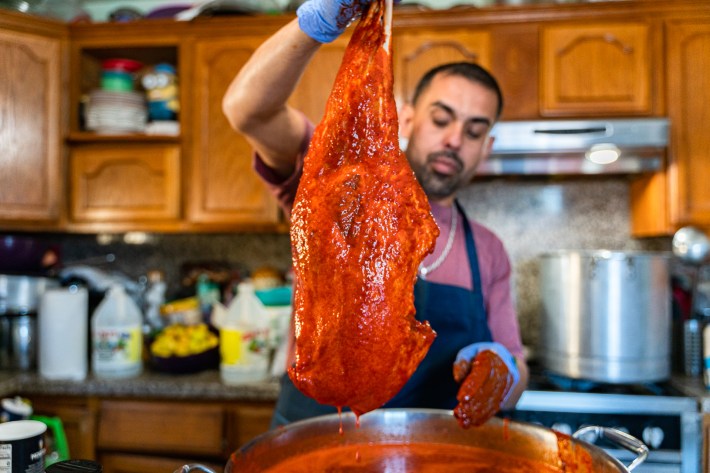
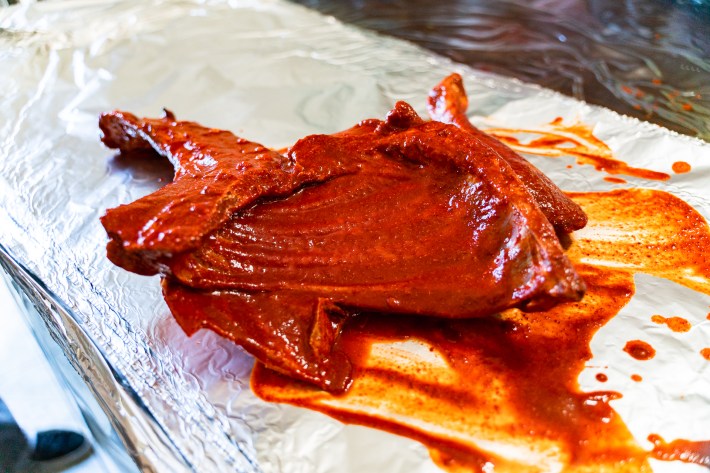
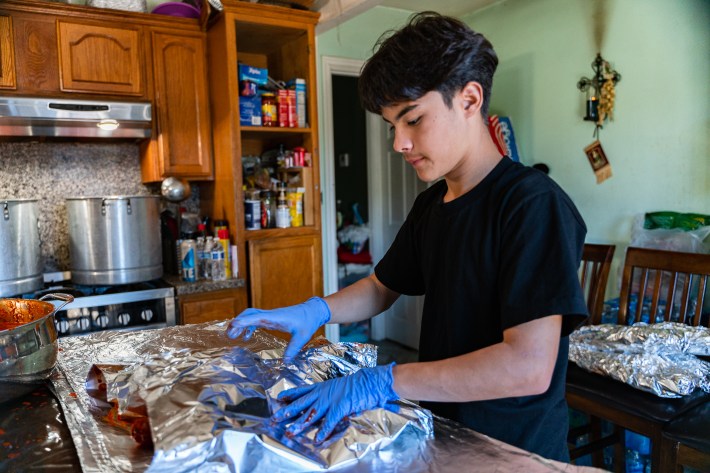
As Sandoval Sr. gets the fire going, Raul Sandoval Jr and his 13-year-old son, Ricky, make the chile rub, wash, and marinate three hundred pounds of goat, and wrap each leg and rib cage in aluminum foil. Plenty of chile California, spices, and loads of salt go into this process.
Once the goats are marinated and wrapped, they rest all day, soaking up the chile and spices until the pit oven is ready. While that happens, the family boils over one hundred pounds of tomatoes, which will become the essential broth for the birria.
As the tomato broth gets going, Sandoval Jr. prepares the hot sauce specific for this birria, a vinegar-based chile that’s common in Jalisco, similar to a Tapatio or Valentina in color and texture, but with a more acidic and punchy clove-spiced heat.
Besides the skills involved with building a brick-lined pit, the recipe and process have also been lost by newer generations during the migration process. Sandoval Jr. only knows how to make it because he found his grandmother’s recipe a few years ago while rummaging through her old things in Atemajac, a neighboring pueblo in the area of Moyahua. He brought the recipe back and took it upon himself to recreate it.
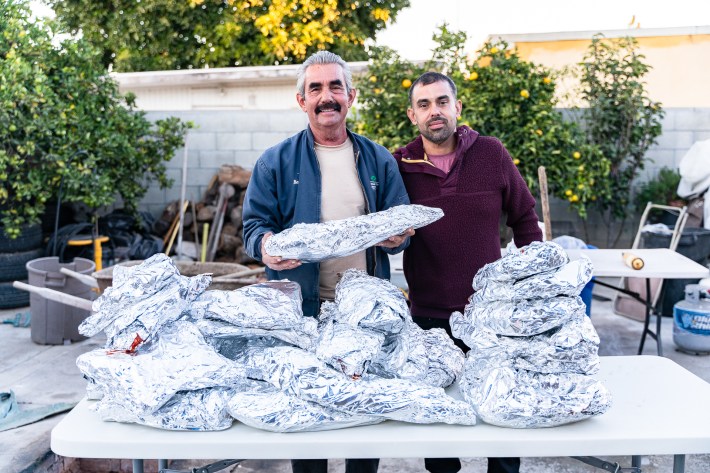
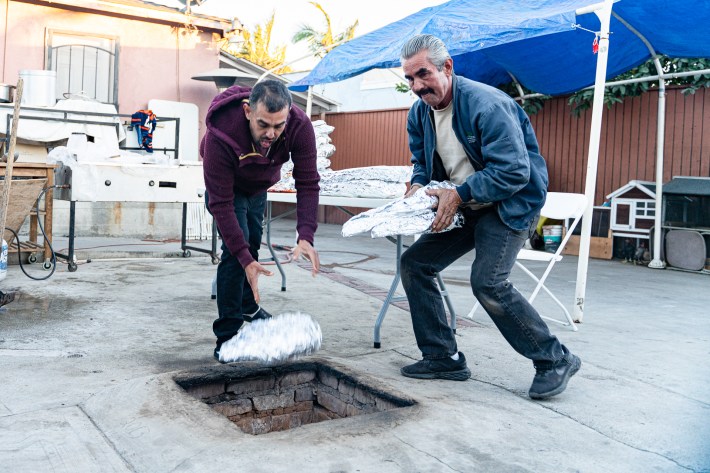
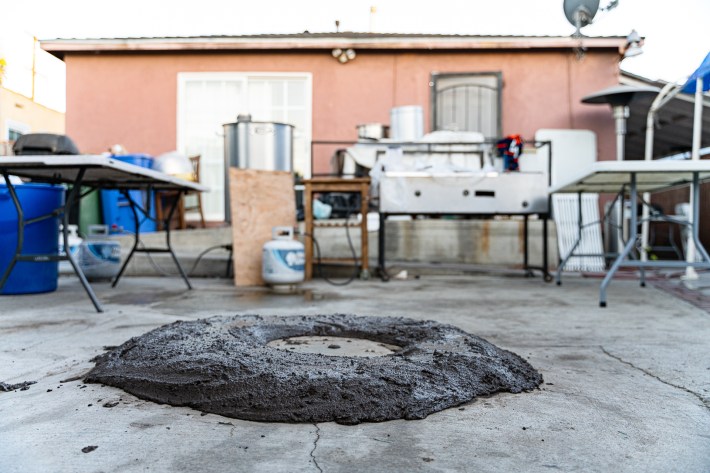
The pit is ready, each aluminum-encased piece of soon-to-be blissful goat is carefully tossed into the pit to avoid the radiant heat emanating out of the hole. That gets covered with a heavy round piece of metal and then sealed with clay mud. Sandoval Sr. carefully molds the mud with his bare hands to ensure a proper seal that prevents smoke from escaping. There it will roast for the next 15 hours.
Sunday morning at around 7:30 am, Sandoval Jr.’s sister chops the onions, cilantro, and lime as a line forms down the driveway past an orange ‘62 Chevrolet C10 truck. Tables are set up, a grill is turned on, the homie Martin Castañeda mans the three-foot-tall pot of tomato broth, and his sister Marina gets ready to accept payments.
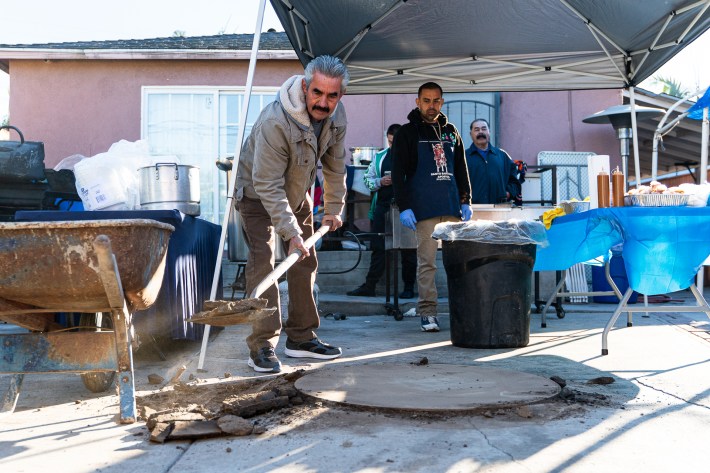
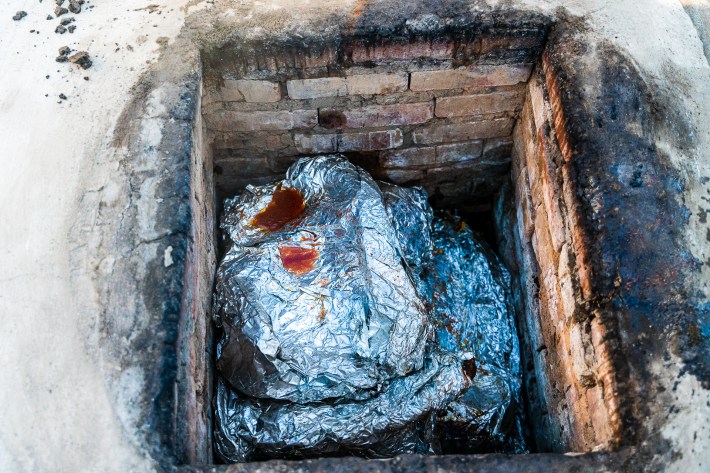
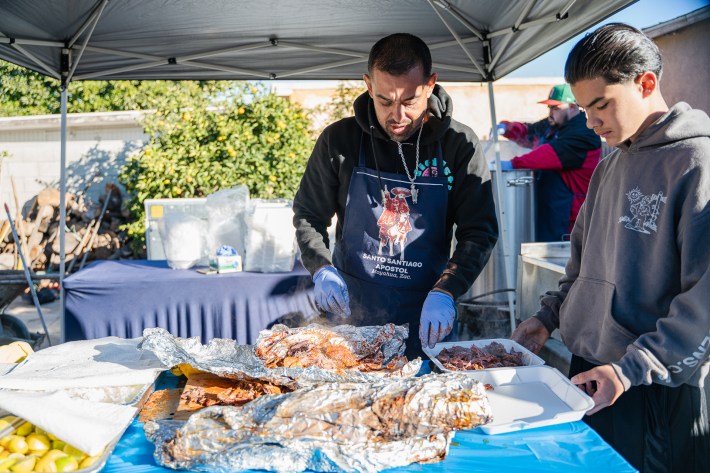
Sandoval Sr. shovels the dried mud back onto a wheelbarrow, uncovers the pit to a roar of smoke, and starts pulling the roasted birria out, one aluminum bundle at a time as each order comes in.
There are no tacos or quesabirrias. That’s not how this birria is offered.
After unwrapping each bundle, Sandoval Jr. effortlessly pulls out the bones, breaks apart the meat, and scoops it into to-go trays. The birria is served traditionally, in a bowl or plate, and drowned in that steamy tomato consome. You top it off with cilantro and cebolla, pour some lime and hot sauce on top, and enjoy it with tortillas. The tortillas here are from Guerrero, but Sandoval Jr. is looking for a better source.
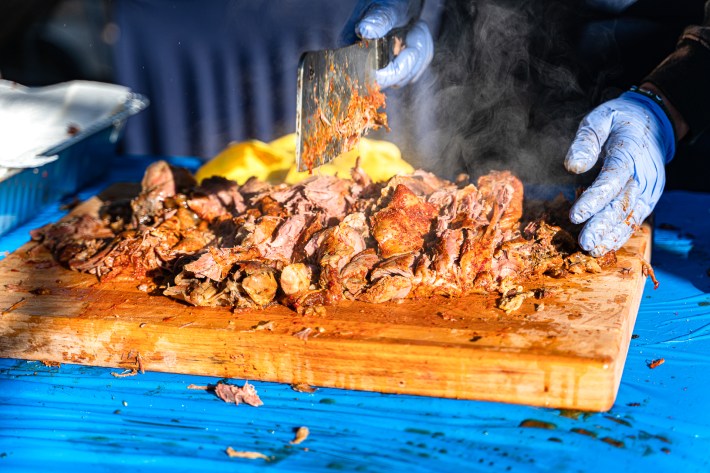
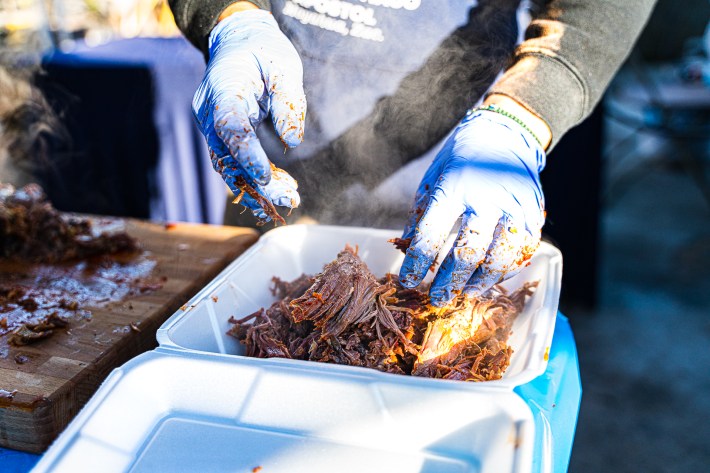
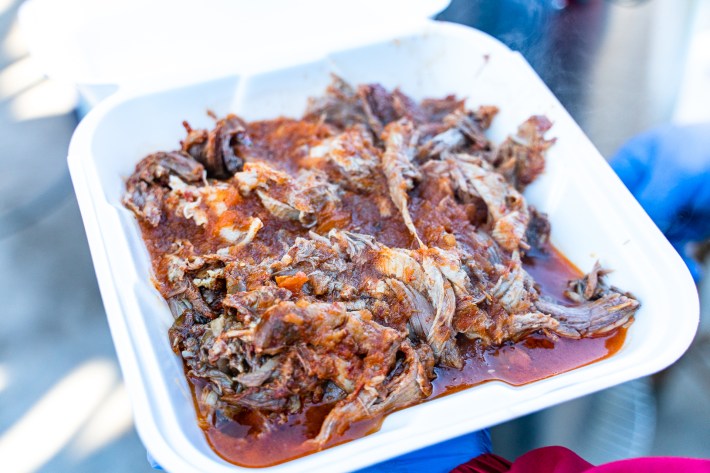
Typically, customers are all family, friends, and people from El Cañon de Juchipila. The typical order is two pounds to-go, priced at twenty-five dollars a pound. But some neighbors will bring their drinks and eat together, with a local group playing corridos at ten dollars a song.
Sandoval Jr.'s initial goal was to revive his grandmother’s birria recipe. It’s a birria recipe that hits home for many and is so hard to find or taste again. But his organic growth has him considering opening up a brick-and-mortar store. He’s hoping to make enough money with his continued pop-ups to reach that goal.
Follow @birria_el_moyahua1 on Instagram for his next pop-up dates. 941 S Eucalyptus Ave, Inglewood, CA.
